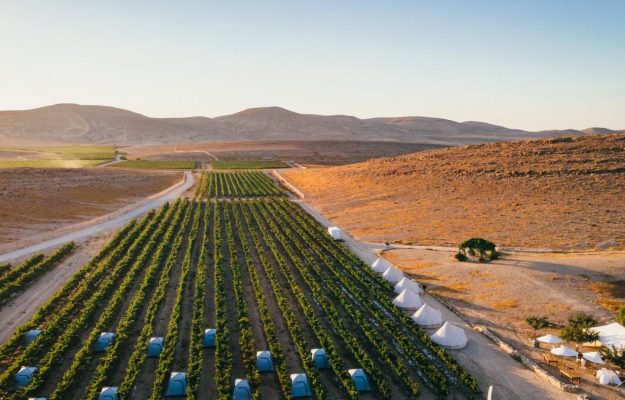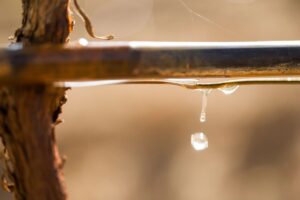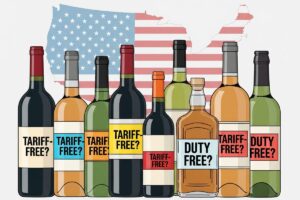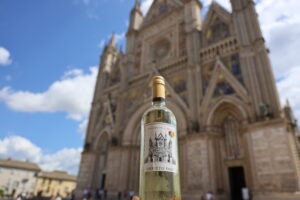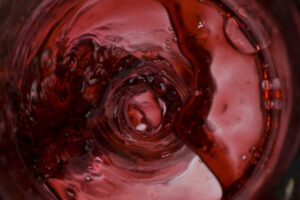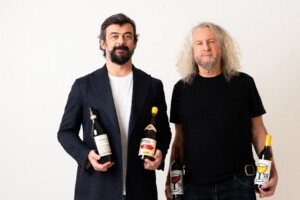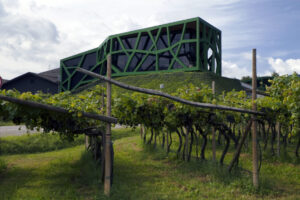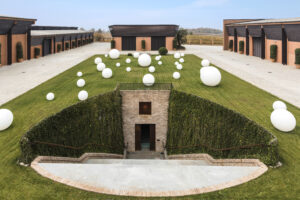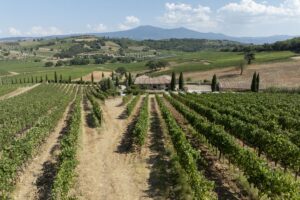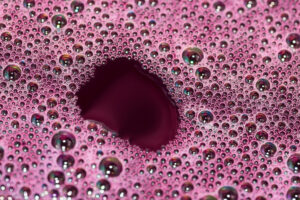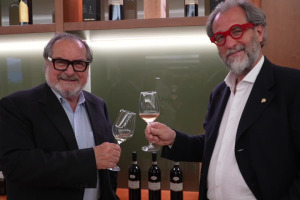The Intergovernmental Panel - IPCC, the United Nations organization that studies climate change, announced the most recent “warning” concerning climate change at the end of February 2022. According to IPCC, the magnitude of the effects of global warming of the Planet is much greater than previous assessments had estimated, and those were already highly disturbing. Climate change and grape quality appear to be in a less and less compatible framework. Therefore, it has become essential to find new interpretations for cultivation techniques to be able to manage the effects of climate change. At the same time, it must become an opportunity to renew production schemes, while preserving the quality of wine in a new context. In other words, then, what is needed is a "Giro di Vite" (tightening of the screws) to use the title of the conference that Donne di Vite (wine women) have chosen to be examined and discussed at the wine and oil technology fair, ENOLIEXPO 2022, in Bari.
“We called on experts in the sector”, Valeria Fasoli, president of Donne della Vite, underlined, “to make contributions of their knowledge and experience on this highly contemporary issue, continuing in the wake of the spirit that distinguishes our organization, Donne della Vite; that is, to communicate, transmit and spread culture in the wine world, while respecting the cardinal principles of sustainable viticulture”. The Italian wine system has shown resilience to climate change, as it is obliged to continue producing appellation wines in historically suited areas, on which quality Italian wine production is based.
Even if it were possible to reverse the course and contain global warming to 1.5 ° C in the next 20 years, according to the IPCC, the environmental, social and economic consequences will be very serious and irreversible, and will impact especially Southern Europe, were vine cultivation is mostly concentrated. The effects on plants, quality of the grapes and consequently, wines, are already evident, and the decline in vineyard production that as been predicted is very close at hand.
“The impact on traditional grapevine growing areas will be substantially heavy”, Vittorino Novello of the University of Turin and vice president of the OIV Viticulture Commission, confirmed. “The grapevine will migrate to Northern Europe, where the increase in temperature constitutes an opportunity. So much so that besides Great Britain, vineyard planting is also having affects in Sweden and Finland. There are many possibilities, from planting to vineyard management, to mitigate the effects of climate change, but what I would like to emphasize is that many of the techniques adopted over the past few decades to obtain higher quality grapes have amplified its effects. One example is the increase in sugar content, now induced by global warming, which we have pursued through reducing yields”.
To manage this new situation, similar to hot-arid climates, “it is necessary to avoid standardizing viticulture models”, Antonio Carlomagno, Agriproject agronomist explained, “ and instead to design sustainable ones, particularly regarding water efficiency and protecting soil fertility. We can only implement agronomic measures so as not to be forced to change crops, defend ourselves from extreme events, monitor the meteorological variables on a farm or district scale, and use sensors and decision support models”.
Looking at an extreme climate such as the Israeli Negev Desert, where, however, incredibly good quality wines are produced, is a prerequisite to understanding how wine is produced today in extreme climate regions. “The desert”, Aaron Fait of Ben Gurion University in the Negev (Israel), said, “is a formidable laboratory to test the effects on grape vines that climate change has already or could have on vineyards in non-desert areas, where preserving the quality of grapes is becoming very difficult. Our experiments on wine grapes as well as many other crops has allowed us to obtain models that anticipate what climate conditions in Europe will be like in the next 20 or 30 years. We have observed a decrease in yields, especially on some varieties, which has lead us to predict losing up to 60% of production considering a 2 ° C temperature increase. We are evaluating the effects of cluster temperatures, above 45 ° C throughout the season, on the quality parameters of the grapes and the composition of the musts. We are experimenting solutions to protect them, such as placing different colored shading nets on the band of the grape bunches and modifying the architecture of the plant according to their shading color. Although both strategies have drawbacks, results relating to the uniformity and quality level of the grapes are positive. We are also working on the responses of 30 varieties, spread around the world, to evaluate their response to extreme climate conditions. One of the indications is, surprisingly, that white berried varieties adapt better to rising temperatures because they ripen faster than red berried ones”.
Climate change also has a sociological implication, which is the parallel change of wine, its alcohol content, acidity and, in general, the very idea of the evolution and longevity of top wines, an accredited aspect of wine quality. It includes, therefore, the contemporary change of thought on quality and consequently wine criticism as well as consumer orientation.
“The wine company, through more or less implicit classifications” - Gianmarco Navarini of the Bicocca University of Milan, observed, “conceives, represents and perceives the quality of wine. These classifications have developed into different categories, including institutional ones, and are used in different ways to represent and identify quality. The developments have revealed the tendency to interlace the concept of wine quality to the environment, and the latter, to the production context concept. In the current social, cultural and intergenerational climate, the new stakes in quality seem to lie in this interlacing. Furthermore, from the production point of view it calls into question, beyond bravery, the beauty of a respectable dose of courage”.
Copyright © 2000/2025
Contatti: info@winenews.it
Seguici anche su Twitter: @WineNewsIt
Seguici anche su Facebook: @winenewsit
Questo articolo è tratto dall'archivio di WineNews - Tutti i diritti riservati - Copyright © 2000/2025










